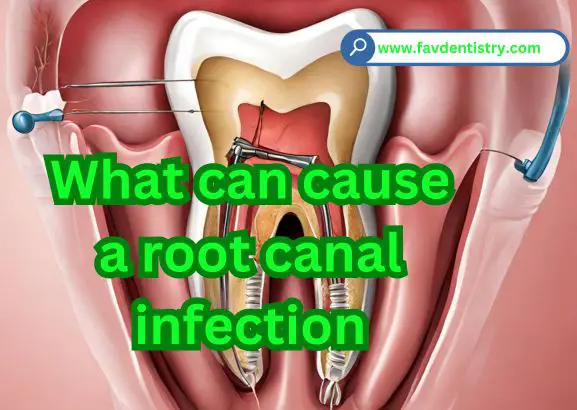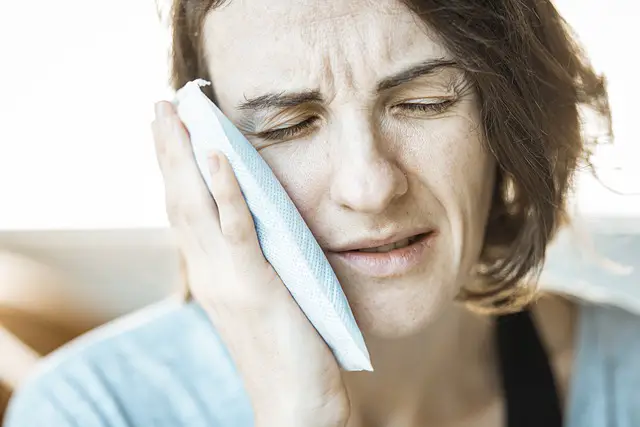Last Updated on 3 weeks by DR. ALBIN SIPES
To stop throbbing pain after a root canal, take over-the-counter pain relievers and apply ice packs to the affected area for 20 minutes at a time. Proper oral hygiene and avoiding hot or cold foods and drinks can also help alleviate discomfort.
Experiencing throbbing pain after a root canal can be excruciating. It is vital to find relief quickly to resume your normal daily activities. We will discuss practical strategies to stop throbbing pain after a root canal. By following these simple tips, you can achieve much-needed relief and get back to feeling like yourself again.
From over-the-counter pain relievers to simple home remedies, we will explore various options to help you find the right solution for managing your post-root canal discomfort. Let’s dive in and discover how to alleviate throbbing pain after a root canal.
Understanding Throbbing Pain After Root Canal
Throbbing pain after a root canal can be distressing and prevent you from enjoying daily activities. Understanding the common causes and symptoms of this pain is crucial to finding relief. The pain may be due to inflammation or infection in the affected tooth, nerve irritation, or even a poorly fitting crown or filling.
You may experience throbbing pain accompanied by swelling, sensitivity to hot or cold, or difficulty in biting or chewing. It is important to seek relief methods to alleviate this discomfort. Home remedies such as applying a cold compress, rinsing with warm salt water, or taking over-the-counter pain relievers can provide temporary relief.
However, it is essential to consult your dentist if the pain persists or becomes severe. Through proper diagnosis and treatment, you can stop the throbbing pain after a root canal and regain your comfort.
Consulting With Your Dentist: Expert Advice
Consult with your dentist for expert advice on how to stop throbbing pain after a root canal. It is essential to contact your dentist post-procedure to ensure proper pain relief. Ask your dentist key questions about managing pain effectively. Understand the guidelines and follow instructions carefully for a successful recovery.
By following these guidelines, you can find relief from throbbing pain after a root canal.
Expert Relief Methods For Throbbing Pain
Expert relief methods for throbbing pain after a root canal include using over-the-counter painkillers that are effective. Immediate relief can be obtained by rinsing with warm saltwater. Another option is applying a cold compress to the affected area. Herbal remedies have benefits in alleviating pain, and relaxation techniques can also help ease discomfort.
By following these tips, you can provide valuable information on stopping throbbing pain after a root canal.
Understanding Otc Painkillers For Relief
Throbbing pain after a root canal can be incredibly uncomfortable. To find relief, many people turn to over-the-counter (otc) painkillers. These medications can help alleviate the pain and discomfort you may be experiencing. It’s essential to understand which other painkillers are popular and their recommended dosage.
Ibuprofen and acetaminophen are commonly used for post-root canal pain relief. The recommended dosage for ibuprofen is 200-400mg every 4-6 hours, while acetaminophen dosage is 500-1000mg every 4-6 hours. However, it’s crucial to be aware of the precautions and potential side effects associated with these medications.
Always read and follow the instructions on the packaging, and consult your dentist or pharmacist if you have any concerns. By utilizing OTC painkillers responsibly, you can effectively manage throbbing pain after a root canal and find the relief you need.
The Power Of Warm Saltwater Rinse
Throbbing pain after a root canal can be alleviated by a powerful remedy: a warm saltwater rinse. To prepare the solution, dissolve half a teaspoon of salt in eight ounces of warm water. Gently swish the mixture in your mouth for 30 seconds, concentrating on the affected area.
This technique helps reduce inflammation and promotes healing. A warm salt water rinse helps cleanse the oral cavity, removing bacteria and debris that might cause infection. It also increases blood flow to the area, which aids in the delivery of essential nutrients to promote faster recovery.
Incorporating this simple yet effective practice into your oral hygiene routine can provide much-needed relief from throbbing pain, helping you recover comfortably after a root canal procedure.
Applying Cold Compress For Pain Relief
Applying a cold compress to alleviate throbbing pain after a root canal is essential. Cold treatment effectively reduces swelling and numbs the affected area. It is crucial to apply the cold compress correctly To ensure maximum relief. Begin by wrapping the compress in a thin cloth or towel to prevent direct skin contact.
Gently press the compress against the painful area for about 15 minutes at a time. Take short breaks between applications to avoid any discomfort or skin damage. Remember to rotate the compress to maintain its coolness. These steps will provide instant relief and aid in reducing inflammation, promoting a quicker recovery from the root canal procedure.
Harnessing The Healing Properties Of Herbal Remedies
Harness the healing properties of herbal remedies to reduce throbbing pain after a root canal. Herbal remedies offer natural relief without the side effects of medication. Among the top herbal remedies is clove oil, which has analgesic properties. Applying it to the affected area can provide immediate relief.
Another effective remedy is peppermint oil, known for its soothing and cooling properties. Applying a few drops to a cotton ball and placing it on the affected tooth can help alleviate the throbbing pain. Chamomile tea, with its anti-inflammatory properties, can also be beneficial.
Simply steep a chamomile tea bag in hot water, let it cool and then place it on the affected area. However, it’s important to follow dosage guidelines and be aware of any potential interactions with medications. Consult with a healthcare professional before using herbal remedies for pain relief.
Relaxation Techniques To Relieve Throbbing Pain
Relaxation techniques can help alleviate throbbing pain after a root canal. By practicing deep breathing exercises, you can promote relaxation and manage the pain effectively. Guided imagery or visualization techniques provide a distraction from the throbbing pain, allowing you to focus your attention on something else.
Additionally, progressive muscle relaxation can help relieve tension, further reducing the discomfort. These techniques are not only beneficial for pain management but also promote overall relaxation and well-being. Incorporating these methods into your routine can greatly assist in easing the throbbing pain after a root canal procedure.
So, take a deep breath, visualize a peaceful scene, and loosen those tense muscles to experience relief from the discomfort.
Post-Procedural Care And Precautions
Post-root canal care and precautions play a crucial role in minimizing throbbing pain. Maintain effective oral hygiene by brushing gently and flossing daily. Avoid hot, cold, and excessively spicy foods that can aggravate pain. Steer clear of acidic beverages like citrus juices and carbonated drinks.
Manage stress levels to reduce sensitivity to pain. Practice relaxation techniques such as deep breathing and meditation. Adequate rest and sleep are also essential for a speedy recovery. Follow these tips diligently to ease discomfort and promote healing after a root canal procedure.
Frequently Asked Questions For How To Stop Throbbing Pain After Root Canal
How Can I Alleviate Throbbing Pain After A Root Canal?
To alleviate throbbing pain after a root canal, you can try over-the-counter pain relievers like ibuprofen. Applying an ice pack to the affected area may also provide temporary relief. If the pain persists or worsens, it’s essential to contact your dentist for further evaluation and treatment.
Is It Normal To Have Throbbing Pain After A Root Canal?
Feeling throbbing pain after a root canal is relatively common and can be a result of post-treatment inflammation. However, if the pain is severe or persists for more than a few days, it’s advisable to consult your dentist to rule out any complications that may require attention.
How Long Does Throbbing Pain Last After A Root Canal?
Throbbing pain after a root canal usually subsides within a few days as the inflammation diminishes. However, the exact duration may vary depending on the individual and the complexity of the procedure. If the pain persists beyond a week or becomes unbearable, it’s essential to seek professional dental advice.
Conclusion
It is crucial to follow the advice and suggestions provided in this blog post to alleviate throbbing pain after a root canal. By being proactive, patients can experience relief and promote faster healing. First and foremost, maintaining good oral hygiene is vital.
This includes proper brushing and flossing techniques, as well as regular dental check-ups. Additionally, adhering to the dentist’s recommendations regarding pain management, such as taking prescribed medications, applying cold compresses, and avoiding hard or chewy foods, can significantly alleviate discomfort.
It is also essential to rest and relax, as stress has been known to exacerbate pain. Finally, staying hydrated and consuming a balanced diet rich in vitamins and minerals can boost the body’s healing process. By implementing these strategies, patients can take control of their post-root canal pain and enjoy a speedy recovery.





